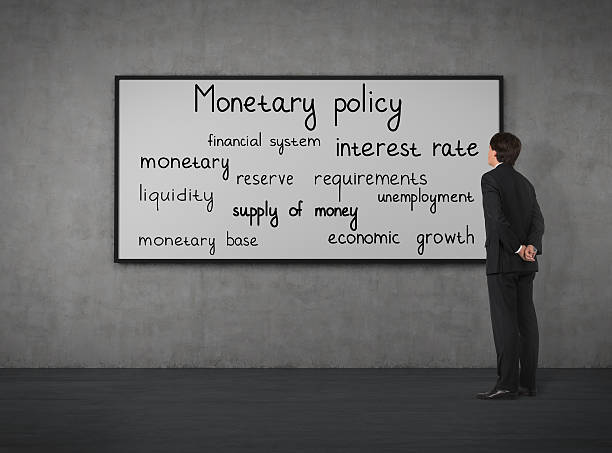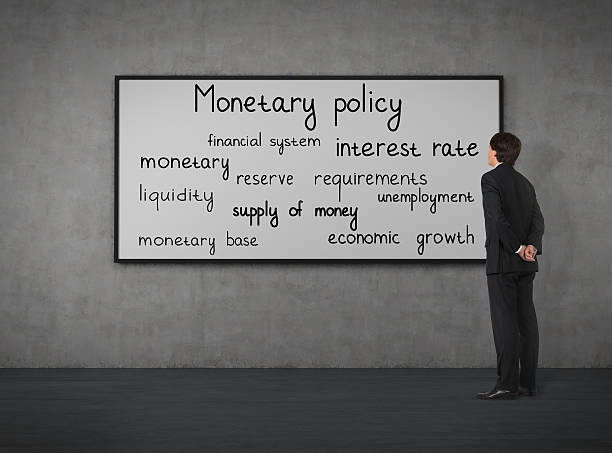
Country
US
A blockbuster nonfarm payroll report has moved forward taper expectations and allowed the yield curve to steepen. The labor market recovery is accelerating as temporary layoffs and permanent job losses dramatically improve.
Wall Street will pay close attention to Wednesday’s July inflation report which should show prices increased again. Persistent inflation worries are showing some signs of easing, but the peak is still not in place. Friday’s consumer sentiment report along with inflation expectations could prove to be market moving. Inflation expectations are already at a 13-year high and that could help support persistent pricing pressures.
Next week, investors will closely pay attention to Fed speak and any comments over tapering following this impressive nonfarm payroll report. On Monday, Fed’s Bostic and Barkin will speak separately. Tuesday, Fed’s Mester will discuss inflation risks. Wednesday is busy with appearance from Fed’s Logan, Bostic, and George.
EU
A quiet week on the data front for the euro area, with the ZEW data on Tuesday the standout.
The PMIs this week were very encouraging and the vaccine program is continuing to improve, which is promising for the coming months.
UK
The data out of the UK this week has remained strong, albeit with the expected negative points, most notably supply side issues and the “pingdemic”.
The Bank of England remains positive about the outlook, having improved its growth and unemployment forecasts and set out plans for tapering of asset purchases and rate hikes. Neither will happen soon, despite the inflation overshoot, with numerous downside risks remaining including delta and the end of the furlough scheme.
Next week offers mostly tier three data, the one exception being second quarter preliminary GDP.
Emerging Markets
Russia
No major data releases next week.
The central bank recently raised rates to 6.5% and warned that more may follow.
South Africa
Manufacturing and business confidence data next week, both of which are low tier releases.
The central bank previously left interest rates unchanged and signaled a hike may be considered later in the year.
Turkey
A plethora of data over the next week leading up to the central bank meeting and rate decision. With inflation now running just shy of the benchmark interest rate, pressure will be on the CBRT to avoid cutting interest rates despite President Erdogan pushing for cuts after sacking another Governor earlier this year.
Asia Pacific
China
Market sentiment has been dominated by the China government’s crackdown on the tech sector and now the education sector with Mainland and Hong Kong exchanges, as well as US-listed China companies taking a bath this week. Concerns are also rising in the corporate credit sector as S&P became the third major rating agency to downgrade Evergrande debt. This time CCC and other Chinese corporate dollar-denominated debt remain under pressure. Regulatory risk will overshadow another busy data week.
In a more ominous development, delta-variant Covid-19 has appeared in a number of Mainland cities, albeit in small numbers. Readers should pay close attention to these numbers over the weeknd and through next week. China succumbing to the latest virus variant, or having to lock down huge parts of the country, is a game-changer. Apart from China itself, think Asia growth and more supply chain disruption. A deteriorating situation will be a huge negative for China markets, but also regional equities and also developed markets like Australia and the US.
China releases its trade balance this weekend and any number under $50 billion will be a negative, indicating slowing growth. China Inflation released on Monday should be benign but poor trade data will add to the headwinds for China equity markets.
India
The Indian Rupee has recovered over the past week due to lower oil importer buying, with Covid-indced demand still weak. Additionally INR has seen inflows from international investors who have been fleeing China markets and rotating into India and ASEAN markets.The Sensex has risen nearly 3.50% this week, making it one of the regions best performers.
The Reserve Bank of India maintained its suite of policy rates unchanged with no change to the QE programme on Friday, despite stagflationary pressures. Like other Asian central banks, the focus is on the domestic Covid-19 economic recovery. The INR briefly fell but quickly recovered losses and is set to continue rallying next week on further investor inflows.
India releases Inflation, Industrial Production and Exports/Imports at the end of next week, but with the RBI out of the way, all should have low market impact. India’s biggest threat remains a resurgence of the virus. A positive for the currency but negative for equities.
Australia & New Zealand
AUD and NZD trading on Monday could be very choppy with both Singapore and Japan on holiday, severely reducing market liquidity.
Australian markets are showing surprising resilience as lockdown expands to Newcastle, Brisbane and Melbourne once again. Some 60% of Australia’s population is now under some sort of restriction with Sydney virus cases continuing to climb on a daily basis. An unchanged RBA had little market impact and Australian equities seem content to follow Wall Street, with Australia’s commodity export machine still firing on all cylinders judging by trade balance data this week.
NAB Business Confidence on Tuesday and Employment Change on Friday will cause some volatility, especially if the numbers are on the low side, heightening fears of the domestic economy slipping back into a Covid-induced recession. The AUD is most likely to suffer as markets price lower for longer from the RBA, but equities will likely take that as positive news in a zero percent fixed interest world.
Swings in global risk sentiment will continue to influence short-term moves in AUD and NZD.
Huge employment numbers this week saw market prices in the first of three RBNZ rate hikes this year, starting this month. The NZD has performed strongly versus the AUD, USD and other low yielders. I expect NZD/USD to rise through 0.7100 this week on its way to 0.7300. Only the arrival of Covid-19 in the community would change the outlook for NZ. Firm Electronic Retail Card Spending Tuesday makes a rate hike a certainty.
Japan
Japan markets are closed on Monday for a national holiday. Japanese stocks indexes continue to slavishly follow moves in the major US markets, ignoring drivers in other parts of Asia. Japan’s Current Account and PPI are the week’s highlights, but only a huge downside miss on either is likely to shake markets.
Japan expanded its Covid-19 states of emergencies and cases and hospitalizations are spiralling. Markets are for the most part ignoring these situations and only hard lockdowns is likely to be a negative for equities.
USD/JPY has dissolved into a purely US/Japan interest rate differential play and I expect this to continue.
Markets
Oil
Oil prices continue to see risk come off over delta variant fears and a stronger dollar. The oil market heavily remains in deficit, but the short-term hit to demand is weighing on prices. After last week’s surprise increase in US stockpiles, energy traders will closely watch to see if that is becoming a trend.
The focus will shift back to Iran nuclear deal negotiations now that Iran President Raisi has taken office. The supply outlook for crude remains very uncertain, but it seems we could see a more conciliary tone out of Iran which could support the expectation that sanction relief could happen closer to year end.
Gold
Gold prices did not stand a chance following a very strong nonfarm payroll report. This employment report was terrible for gold as it did not support needs for safe-havens and given a good chunk of the wage gains is from low-paying jobs, it did not do much for driving inflation hedges.
Gold could have further downward pressure as Fed tapering bets grow following this strong NFP beat, upward revisions, and strong declines with both temporary layoffs and permanent job losses.
Gold is in the danger zone after breaking below key moving averages, longer-term trendlines, and prior support levels. Gold may find some support from the $1,750 level, but if that breaks prices could tumble towards the psychological $1700 level.
Bitcoin
Bitcoin is once again testing the upper boundaries of its recent trading range. Now back above the $40,000 level and holding up nicely despite a strong dollar, bullish technical buying could accelerate over any fresh endorsements on Wall Street.
It is worth noting that Ethereum momentum is gaining following their latest network upgrade. Ethereum dominance could become the theme over the coming months.
Key Economic Events
Monday, Aug. 9
- Atlanta Fed President Bostic discusses building an inclusive economy at a virtual event hosted by the Greater Fort Lauderdale Alliance Foundation’s Prosperity Partnership.
- Richmond Fed President Barkin speaks to the Roanoke Regional Chamber.
- Bulgarian lawmakers may vote this week on a minority government proposed by ITN, the winner of inconclusive July do-over elections.
- Japan observes the Mountain Day holiday.
Economic data and events:
- China money supply, new yuan loans, PPI, CPI
- Germany Trade
- Indonesia consumer confidence
- Australia foreign reserves
- Mexico CPI
Tuesday, Aug. 10
- Cleveland Fed President Mester discusses inflation risks versus Europe at a virtual event hosted by her bank.
- Poland’s government takes aim at US-owned broadcaster
Economic data and events:
- Australia NAB business confidence
- Germany ZEW survey expectations
- Czech Republic CPI
- Hungary CPI
- Philippines GDP
- Japan bank lending, BoP, bankruptcies
- New Zealand REINZ house sales
- South Africa manufacturing production
Wednesday, Aug. 11
- Atlanta Fed President Bostic discusses the Fed’s role in making the economy more inclusive at a virtual event hosted by the Chautauqua Institution.
- Kansas City Fed President George delivers a keynote address at the virtual annual NABE Economic Measurement Seminar.
- New York Fed EVP Logan speaks at the virtual Financial Crisis Forum, hosted by the Bank for International Settlements and the Yale Program of Financial Stability.
Economic data and events:
- US July CPI M/M: 0.5%E V 0.9% prior; Y/Y: 5.3%e v 5.4% prior
- Germany CPI
- Japan M2 money stock, machine tool orders
- Mexico industrial production
- Singapore GDP
- Australia Westpac consumer confidence
- Russia trade
- EIA Crude Oil Inventory Report
Thursday, Aug. 12
Economic data and events:
- US initial jobless claims, PPI
- USDA World Agricultural Supply and Demand Report (WASDE)
- Eurozone Industrial production
- Turkey Industrial production
- India industrial production, CPI, trade
- Japan PPI
- UK Trade balance
- Mexico Rate decision: Banxico to raise Overnight Rate by 25 basis points
- Turkey Rate decision: CBRT to stick with a tight stance as it holds rates despite surging inflation
- New Zealand food prices, 2-year inflation expectation
- UK industrial production, manufacturing production, GDP
- OPEC monthly report
Friday, Aug. 13
Economic data and events:
- US Aug Prelim University of Michigan consumer sentiment: 81.2e v 81.2 prior
- France unemployment, CPI
- New Zealand Manufacturing PMI
- Russia GDP
- Poland GDP, CPI
- Thailand forward contracts, foreign reserves
- Turkey current account balance
- Czech Republic current account
Sovereign Rating Updates:
- Turkey (Fitch)
- Hungary (S&P)
- Sweden (S&P)
- Ireland (Moody’s)
- Belgium (DBRS)


 Signal2forex.com - Best Forex robots and signals
Signal2forex.com - Best Forex robots and signals




